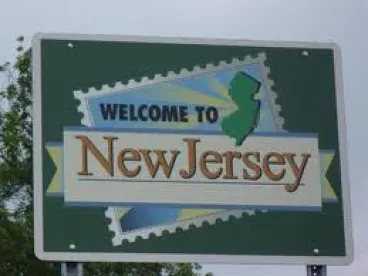California, New York and New Jersey all have earned wage access (EWA) legislation pending, although nothing much has happened with these bills for months. Last week, however, a New Jersey Assembly committee amended one of these bills, AB 3450, and sent it to the floor for further consideration. Some of the changes made by the committee are helpful but some of them are not.
We’ve written about earned wage access products before as well as legislative initiatives to regulate them. New Jersey’s Assembly Bill 3450, introduced in late February 2020, would regulate EWA products in several ways. The bill requires EWA providers to have contracts with the employers, verify the employee’s earned income before making an advance and to secure the employee’s consent before obtaining information about the employee from the employer. The amended version also requires providers to register with state regulators and to base the amount of an advance on the employee’s net wages rather than gross wages. These modifications seem appropriate and beneficial.
This original bill essentially killed direct-to-consumer business models because it prohibited the provider from recouping the advance directly from the consumer’s bank account. The amended bill strikes this provision and allows for direct-to-consumer products as long as the provider does not charge the consumer a “mandatory fee.” The ban on “mandatory fees” presumably allows providers to collect “voluntary fees.” One provider in the marketplace operates on a business model where it does not assess fees but does collect “tips” from consumers who use the service. This amendment would allow that provider’s tip business model but would prohibit all other direct-to-consumer products. It seems inappropriate and unfair for legislation to pick winners and losers in the competitive and evolving marketplace for EWA products. This is especially true when the provider who relies on tips has been sued over whether the voluntary payments really are voluntary. More on that litigation below.
Another problem with the ban on mandatory fees for direct-to-consumer models is that given the way the provision is written, it arguably applies to all EWA providers and not just direct-to-consumer services. The actual provision states that a “provider that contracts directly with a consumer shall not charge a mandatory fee to the consumer.” The issue with this wording is that employer-integrated providers typically interact with employees through mobile apps or websites that require the user to agree to Terms of Service that are technically a contract. This means the prohibition could be interpreted to apply not just to direct-to-consumer business models but to all to EWA providers.
Most employer-integrated providers allow an employee to receive an advance without charge via electronic fund transfer. Those transfers take two to three days to arrive, however, so providers commonly also offer a real-time payment option at a nominal fee which makes the advanced funds available to the worker in a few minutes. Real-time payments are more expensive than old-fashioned ACH and the fee is necessary if providers are going to offer this option. If providers cannot offer real-time payments, EWA products become less useful to employees. AB 3450 should be further amended to clarify that the prohibition on mandatory fees does not apply to employer-integrated services. This bill appears to have some momentum and we expect additional legislative action in the near future. Stay tuned for more developments.
We mentioned above the class action litigation filed against Earnin back in 2019. Those cases were recently settled. While the complaints had alleged a number of causes of action, including violations of federal and state lending laws as well as unfair and deceptive acts and practices, the settlement focuses on consumers who were charged an overdraft or insufficient funds fee by their bank due to an Earnin withdrawal.
The settlement provides for up to $12,500,000 in relief. That amount includes $3,000,000 to cover compensation to class members, attorney’s fees and class administration costs. Earnin is also required to forgive certain unpaid advances up to an aggregate amount of $9,500,000. In addition, Earnin agreed to provide consumers with disclosures regarding the risk of third-party fees, to refund subsequent overdraft and NSF fees for a year, to not consider individual tipping behavior when determining a consumer’s advance limit, and to otherwise comply with all applicable state and federal law. All providers in the EWA space should review the settlement in detail to glean some valuable lessons learned.



 />i
/>i

